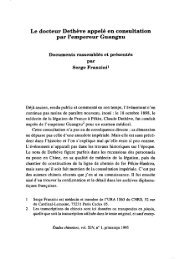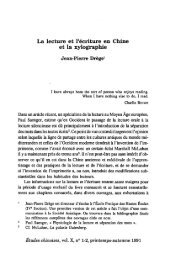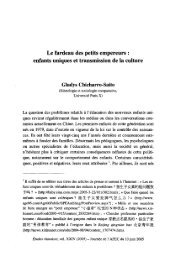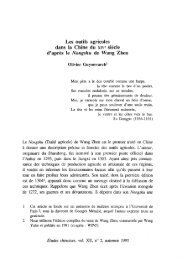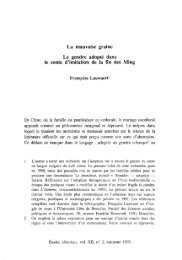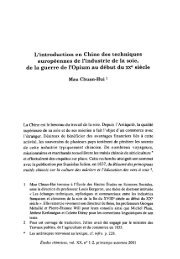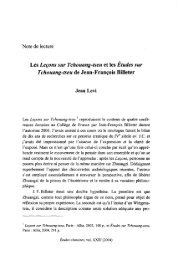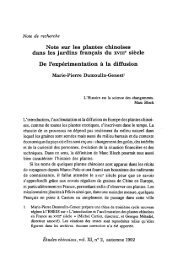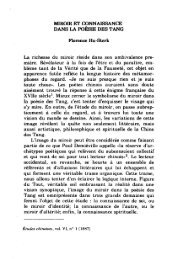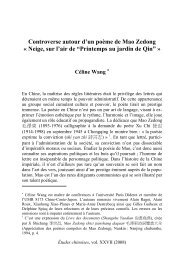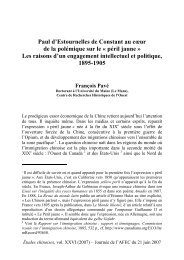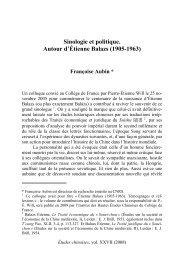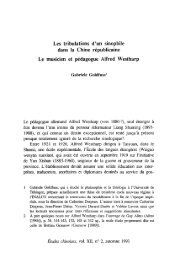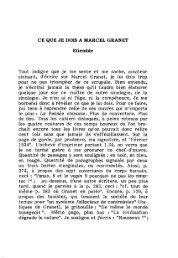Create successful ePaper yourself
Turn your PDF publications into a flip-book with our unique Google optimized e-Paper software.
Comptes rendus<br />
White Masks (the title is given hère and elsewhere as Black Skin and White<br />
Masks) by the Martinican psychoanalyst and revolutionary Franz Fanon<br />
(1925-61), she begins (p. 31): "Never has a lone word among the myriad<br />
languages of humanity made so much history as the Chinese character yi<br />
35-" This is quite a generalization, to say the least, but Liu is just warming<br />
up: "By history I mean world history. Countless events and fantastic happenings<br />
hâve corne to pass over the last two centuries [World War II? The<br />
Great Leap Forward? - JF], but none could rival the singularity of the<br />
Chinese word yi in its uncanny ability to arouse confusion, anxiety, and<br />
war. Yi is one of those monstrous créatures one must reckon with, subdue,<br />
destroy, or exile before it cornes back to haunt us." I was unaware that a<br />
single word was capable of starting wars, but Liu's suggested désire to<br />
"destroy," "exile," or "subdue" it sounds almost as violent. What could<br />
possibly be in a name? Sticks and stones?<br />
Liu is decidedly not advising that we find a proper translation for yi;<br />
she even suggests that translation as such may be impossible. Her point is<br />
that the British seized on this term to mean "barbarian," and after their<br />
victory in the Opium War they demanded that the Chinese term be stricken<br />
from ail treaties. Chinese and Manchu protestations to the contrary, it was<br />
excised. Thus, yi meaning "barbarian" became a super-sign, which Liu<br />
tells us repeatedly is a "monstrosity."<br />
Did yi truly signify "barbarian" (meaning the opposite of civilized or<br />
cultured), or did it simply mean "foreign" or "alien"? In the middle of a<br />
dispute between two parties - in this instance, the British and the Qing<br />
empires - the involved parties are the last entities one should turn to for a<br />
clear understanding of the issue at hand. That is why I tried to médiate the<br />
dispute by invoking a third party outside the clash and avant le fait. Japanese<br />
Neo-Confucians of the seventeenth and eighteenth century clearly<br />
thought that yi meant "barbarian" (as in uncouth, uncivilized); some accepted<br />
the désignation for themselves and hoped Japan would improve and<br />
become more like China, while others (as in the case of Asami Keisai,<br />
cited above, and others) found the désignation offensive. In both instances,<br />
however, there was no doubt in the least concerning the connotation of the<br />
term yi (and there was, of course, no intermediate English term). And, if<br />
511



